Navigating the challenges of training multiple dogs in a single household can seem daunting.
However, with the right approach, it’s not only possible but can also be a rewarding experience for both you and your furry friends.
The key lies in understanding the unique dynamics of multi-dog training and implementing strategies that cater to individual and collective needs.
Individual Training: The Foundation of Success
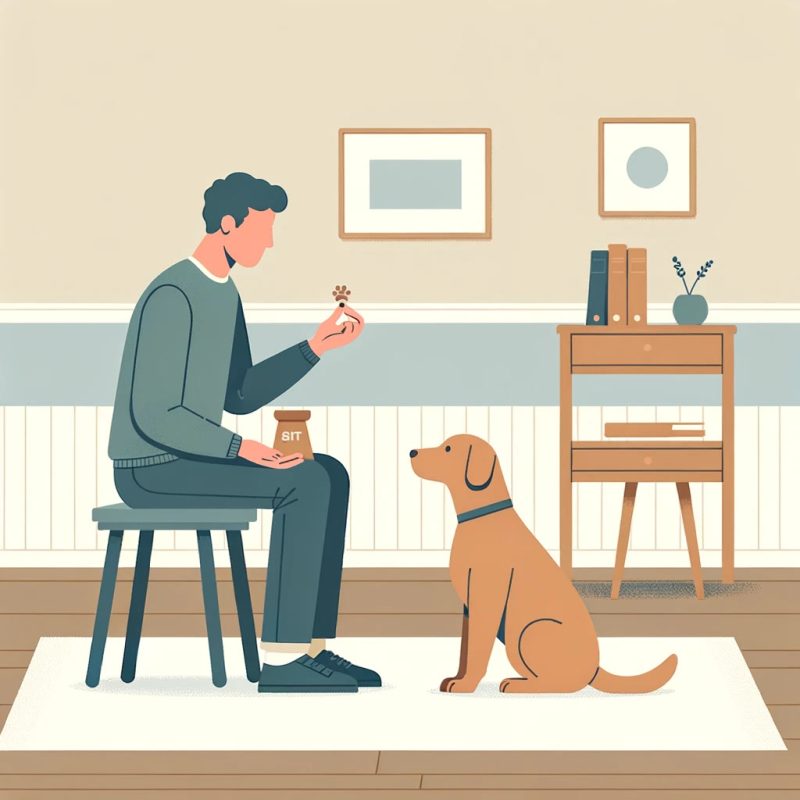
The journey of multi-dog training starts with individual sessions.
It’s essential to recognize that each dog has its unique personality and learning pace.
Therefore, training them separately initially lays a strong foundation for future group training.
This approach ensures that each dog gets the undivided attention they need, fostering a deeper bond between you and each pet.
Separation for Concentration

When it’s training time, focus on isolating the dogs from each other.
If you have someone at home, they can engage one dog while you train the other.
For solo pet parents, alternating indoor and outdoor training sessions can be effective.
The goal is to create an environment where each dog can concentrate without distractions from their furry siblings.
Short and Sweet Training Sessions
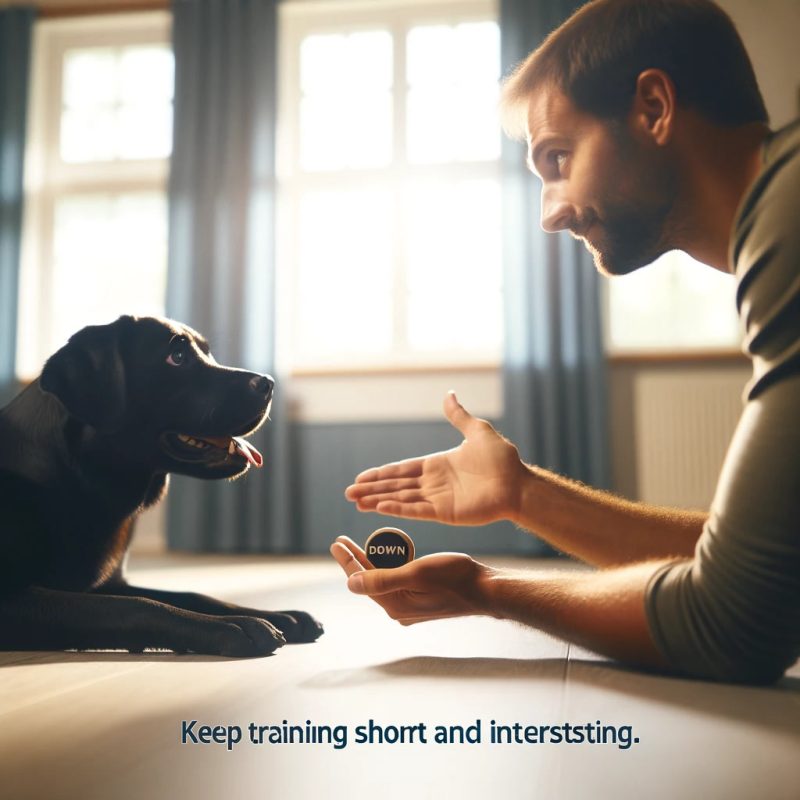
Keep training sessions brief but impactful.
This is especially crucial when dealing with multiple dogs, as they might get distracted by the absence of their companions.
Aim for short, focused sessions and end them once you notice any signs of decreased attention.
Staggering Training: Maximizing Learning
Avoid back-to-back training sessions for each dog. Allow some time in between sessions for them to relax and reset.
This approach prevents them from being overly excited or anxious, which can hinder the learning process.
Advanced Stage: Group Training Sessions
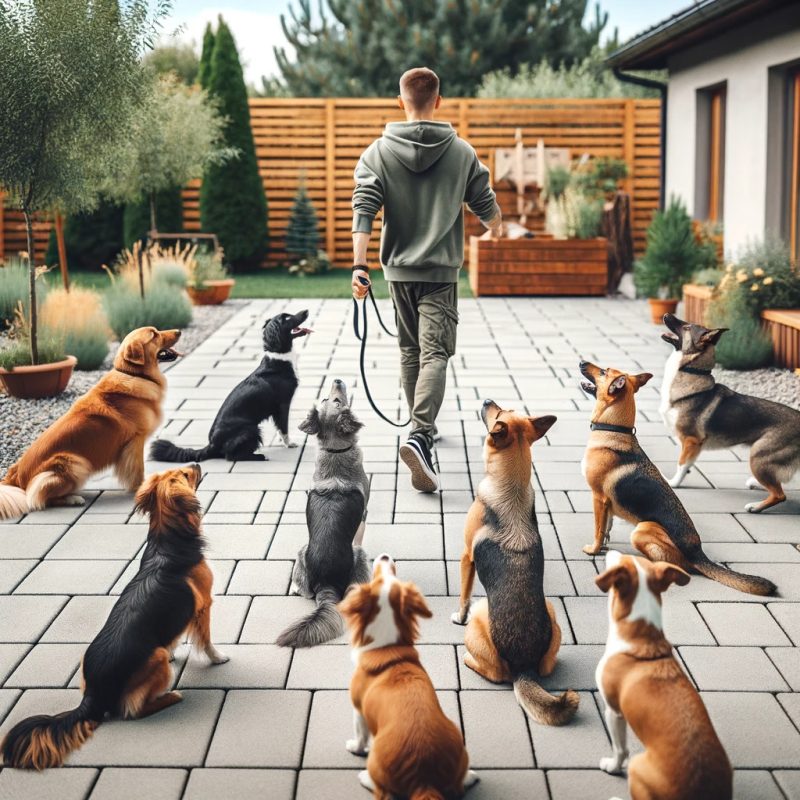
Once your dogs have mastered the basics individually, it’s time to introduce group training sessions.
This step is crucial in reinforcing commands and ensuring that your dogs can follow instructions even in the presence of their companions.
Group Commands: Sit, Down, Stay, and Come
- Sit and Down: These basic commands are excellent for group training. Issue the command without addressing any dog by name. Reward them when they all comply.
- Stay and Come: These commands require more focus from your dogs. Start with a ‘sit’, followed by ‘stay’. Move a few steps back and then call them with ‘come’. This exercise not only reinforces obedience but also strengthens their focus on you amidst distractions.
Conclusion: Training Multiple Dogs is Achievable
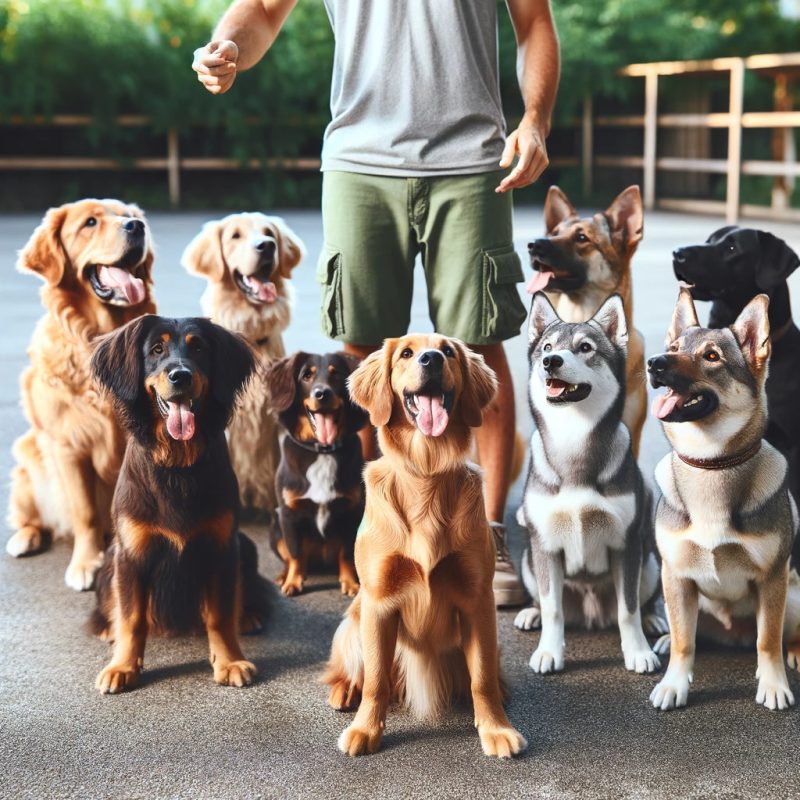
Training multiple dogs in one household certainly has its challenges, but with patience and the right techniques, it’s entirely feasible.
The key is to start with individual training sessions, building up to group exercises once basic commands are mastered.
Remember, the goal of dog training is not just obedience but also strengthening the bond between you and your pets.
With this comprehensive approach, you’ll find multi-dog training not just doable, but enjoyable for everyone involved.






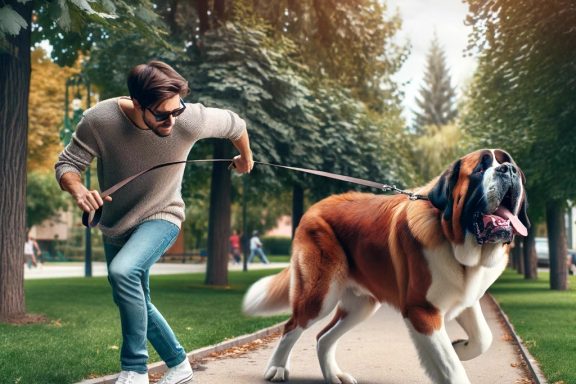
No Comments